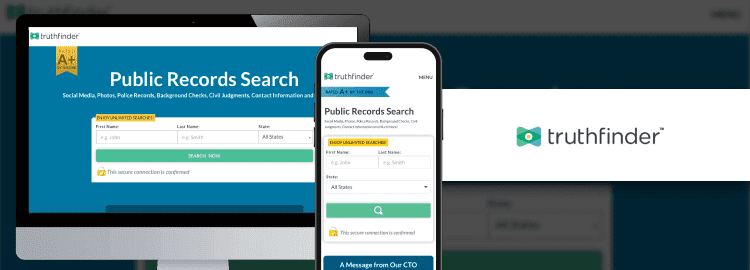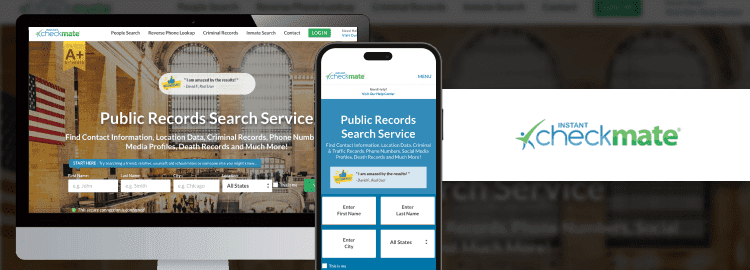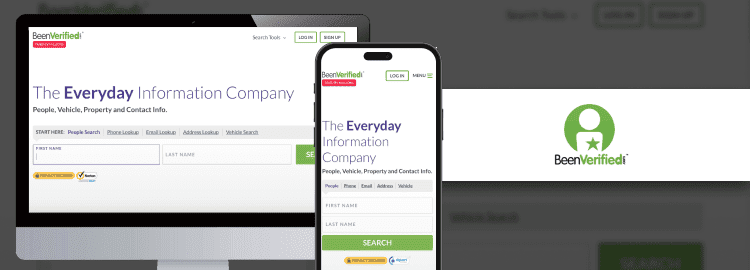Background Check in Maryland: Laws & Process Requirements

Background checks are essential for informed decisions in hiring, renting, or volunteer placements. They provide a detailed view of an individual’s history, including criminal records and employment history.
Maryland state background check ensures public safety, verify qualifications, and comply with state and federal laws. This guide outlines the procedure of background screenings, applicable laws, and timelines for conducting background checks in Maryland, helping you manage this important task effectively.
Need a Background Check?
Get StartedWhat Is a Maryland Background Check?
A Maryland background check is a thorough review of an individual’s history for purposes like employment, housing, firearm purchases, and volunteer opportunities. These checks provide detailed information about a person’s past, including criminal records and employment history, helping people to make informed decisions. It’s important for organizations and individuals to perform background checks to ensure they have all the necessary information before making decisions.
Why are Maryland background checks important?
- Ensuring safety and security
- Verifying qualifications
- Compliance with laws
- Protecting the community
How Do I Get a State Background Check in Maryland?
Here’s a step-by-step guide to help you through it:
- Determine the Type of Background Check You Need: Decide if you need a criminal record check, employment verification, or another type of background check. For most cases, you’ll be dealing with a criminal background check through the Maryland Department of Public Safety and Correctional Services.
- Complete the Background Check Request Form: Download and fill out the Criminal History Record Request Form from the Maryland Department of Public Safety and Correctional Services (DPSCS) website.
- Provide Required Identification: You’ll need to provide a valid form of identification, such as a driver’s license or passport, to verify your identity.
- Submit Your Fingerprints: If needed, get your fingerprints taken at an approved fingerprinting service center.
- Pay the Processing Fee: The fee is $18.00 for mail-in requests and $38.00 for in-person requests. An additional $1.00 is required for a Gold Seal.
- Submit Your Request: Mail your form, ID, and payment to the CJIS Central Repository, or visit a fingerprinting service center that accepts in-person applications.
- Wait for Processing: The processing time for a state background check is typically about 10 working days from the date the request is received. For faster processing, consider using expedited services if available.
- Receive Your Background Check Report: Once processed, your background check report will be mailed to you. You can also check the status of your request through the CJIS website.
What Shows up on a Maryland Background Check?
Here’s what typically shows up in different types of background checks. It’s essential to conduct background checks to obtain this information accurately and comprehensively.
Criminal Check
Criminal history background check reveal an individual’s criminal history, including arrest records, charges, and convictions. This is often the primary component of a pre-employment background check and is used to assess a person’s suitability for a position or opportunity based on their criminal record. For instance, it may include:
- Arrest records
- Misdemeanors and felonies
- Pending charges
- Convictions and sentencing details
Employment Background Check
Employment background check confirm a person’s past job titles, dates of employment, and job responsibilities. This type of check helps public and private employers validate the accuracy of a candidate’s resume and assess their professional experience. It includes:
- Dates of employment
- Job titles
- Employer contact information
- Job responsibilities and achievements
Credit Background Checks
Credit background checks review an individual’s credit history and financial behavior. They are often used for positions involving financial responsibilities or when a landlord evaluates a potential tenant’s ability to manage financial obligations. The check can show:
- Credit score
- Credit report details
- Outstanding debts and credit history
Driving Record Checks
Driving record checks provide information about an individual’s driving history, including traffic violations, suspensions, and accidents. This check is often required for jobs that involve driving or for certain insurance purposes. It includes:
- Traffic violations and tickets
- Points on the driving record
- License suspensions and revocations
- Accident history
Education Verification
Education background checks confirm the authenticity of an individual’s educational qualifications. This is a common component of pre-employment background checks for positions that require specific degrees or certifications. It includes:
- Degrees earned
- Graduation dates
- Institutions attended
- Major fields of study
Civil Court Searches
Civil court searches examine an individual’s history of civil lawsuits and judgments. This type of check is often used to assess potential risks related to legal disputes and financial judgments. It includes:
- Civil lawsuit records
- Court judgments and settlements
- Case details and outcomes
Drug Testing
Drug testing is a process used to detect the presence of illegal substances or alcohol in an individual’s system. This check is commonly used for pre-employment screenings or for positions that require adherence to drug-free workplace policies. It includes:
- Urine, blood, or hair tests
- Substance abuse history
- Test results and interpretations
What Are the Background Check Laws in Maryland?
Here’s an overview of the background check laws in Maryland.
Maryland Fair Employment Practices Act (FEPA)
The Maryland Fair Employment Practices Act prohibits discrimination based on race, color, religion, sex, age, national origin, marital status, sexual orientation, gender identity, genetic information, or disability.
This act impacts how background checks are conducted to ensure fairness and non-discrimination across all areas where background information is used.
Maryland Criminal Procedure Article § 10-101 et seq.
This Maryland Criminal Procedure statute outlines the procedures for obtaining, maintaining, and disseminating criminal history record information. It ensures standardized processes and the protection of individual rights during background checks for various purposes, including employment, housing, and volunteer work.
Maryland Commercial Law Code § 14-1201 et seq.
The Maryland Commercial Law Code governs consumer reporting agencies and the information they provide. This code ensures that background check information is accurate, relevant, and appropriately used by employers, landlords, credit agencies, and other entities requiring background information.
Maryland Criminal Justice Information System (CJIS) regulations
CJIS regulations specify how criminal justice information should be managed and disseminated. Compliance with these regulations is necessary for conducting criminal background checks in various contexts, ensuring the integrity and security of the information.
Maryland Code, Public Safety Article, § 5-117.1
The Maryland Code, Public Safety Article, § 5-117.1 addresses the regulation of firearms and the necessary background checks for firearm purchases. It ensures that individuals prohibited from owning firearms are identified through thorough background checks, enhancing public safety.
Maryland Human Relations Commission regulations
The Maryland Human Relations Commission enforces state anti-discrimination laws, ensuring that background checks do not result in discriminatory practices. These regulations protect individuals from unfair treatment based on the results of their background checks in employment, housing, and other sectors.
Federal Fair Credit Reporting Act (FCRA)
The FCRA regulates the collection, dissemination, and use of consumer information, including background checks. Maryland entities must comply with FCRA requirements, such as obtaining consent before conducting a background check and providing adverse action notices if decisions are influenced by the results.
Ban the Box Law (House Bill 994)
Maryland’s Ban the Box law restricts certain entities from asking about an applicant’s criminal history on initial applications. This law aims to give individuals with criminal records a fair chance by delaying background checks until later in the decision-making and hiring process.
Local Maryland Fair Hiring Laws
The Maryland Fair Employment Practices Act prohibits discrimination in employment based on race, color, religion, sex, national origin, age, marital status, sexual orientation, gender identity, genetic information, and disability. These laws are designed to create a level playing field for all job seekers and to promote diversity and inclusion in the workplace.
In addition to statewide regulations, certain jurisdictions within Maryland have their own specific fair hiring laws. For example:
- Montgomery County: Employers with 15 or more employees must comply with the county’s laws, which include provisions for sick and safe leave, ensuring employees can take time off for health or safety reasons without fear of losing their jobs.
- Prince George’s County: This jurisdiction has additional protections for employees, including specific anti-discrimination measures and requirements for employers to provide reasonable accommodations for employees with disabilities.
- Baltimore City: Employers in Baltimore are required to follow the city’s ban-the-box ordinance, which prohibits asking about criminal history on job applications, ensuring that candidates are judged on their qualifications first.
These local laws work alongside state regulations to protect workers and ensure fair hiring practices across Maryland.
How Far Back Does a Background Check Go in Maryland?
When it comes to background checks in Maryland, the general rule is that consumer reporting agencies (CRAs) may not report certain types of information that are older than seven years. Specifically, under Md. Code Ann. § 14-1203, CRAs cannot report:
- Bankruptcies older than 10 years.
- Civil judgments and civil lawsuits that are older than seven years.
- Paid tax liens older than seven years.
- Arrests that did not result in convictions and convictions that are older than seven years.
This means Maryland background checks usually focus on the most recent seven years, ensuring the information is relevant and up-to-date.
How Long Does a Background Check Take in Maryland?
The time for background checks in Maryland can vary depending on the type of check being performed:
- State Background Check: Results are typically mailed within 10 working days from the receipt of the approved application.
- Federal Background Check: Processing usually takes 2 to 4 weeks due to the inclusion of FBI database checks.
- Employment or Housing Background Checks: These checks are often faster, usually completed within a few days to a week, depending on the employer or landlord’s processes and the responsiveness of the agencies involved.
How Much Does a Background Check in Maryland Cost?
The cost of a background check in Maryland can vary depending on the type and method of the check:
- State Background Check (Mail-In): $18.00
- State Background Check (In-Person): $38.00
- State Background Check with Gold Seal (Mail-In): $19.00
- State Background Check with Gold Seal (In-Person): $39.00
- Attorney/Client Civil Background Check (Mail-In): $18.00
- Attorney/Client Civil Background Check (In-Person): $38.00
These costs include the CJIS Service Fee of $20.00 for in-person fingerprinting, which is necessary for many types of background checks. The variation in cost between mail-in and in-person services reflects the additional handling and processing involved with in-person checks.
Where To Get A Background Check In Maryland?
In Maryland, you can obtain a background check through the Maryland Department of Public Safety and Correctional Services (DPSCS). They provide state criminal background checks based on fingerprinting, which can be done at authorized fingerprinting centers. Visit the DPSCS website to download forms and find fingerprinting locations.
Private companies also offer online background check services. These platforms provide various types of checks, including criminal records, employment history, and social media profiles, offering a convenient option for individuals and employers seeking detailed and quick background information for personal purposes.
Best Background Check Sites
Here are some top recommendations, along with their pros and cons.
- TruthFinder – Best for user-friendly reports
- Instant Checkmate – Best for extensive databases
- BeenVerified – Best for versatile searches

TruthFinder is known for its user-friendly platform that provides comprehensive reports on individuals. The service offers features such as criminal records, contact details, social media profiles, and more. Designed for easy access, it serves individuals who need detailed and reliable information quickly.
Pros
-
Simple interface
-
Detailed reports
-
Access to social media profiles
-
Continuous monitoring available
Cons
-
Needs mandatory monthly membership
-
Needs subscription
Star Rating
/ 5.0

Instant Checkmate is known for its large database and quick results. It provides detailed background reports, including criminal history and address records, making it ideal for anyone needing fast and thorough information for various purposes.
Pros
-
Quick results
-
Extensive database
-
Comprehensive reports
-
Intuitive design
Cons
-
Pricey
-
Reports might take a little bit of time to load
Star Rating
/ 5.0

BeenVerified stands out for its versatile search capabilities and wide range of features. It provides information on criminal records, contact details, property records, and more. The platform is designed for simplicity and accuracy, making it suitable for both personal and professional use.
Pros
-
Versatile searches
-
Wide range of features
-
Straightforward interface
-
Reliable and accurate data
Cons
-
Only in US
-
Need subscription
Star Rating
/ 5.0
Recap on Maryland Background Check
Understanding the Maryland background check laws is important for conducting checks correctly. These laws outline the legal requirements and limitations for accessing and using personal information.
By adhering to these regulations, organizations and individuals can ensure they are compliant with state laws, avoid potential legal issues, and protect the rights of those being screened. Following Maryland background check laws helps organizations and individuals to conduct background checks effectively, ensuring safety, verifying qualifications, and maintaining trust within the community.
Trusted services like TruthFinder, Instant Checkmate, and BeenVerified offer detailed information to help you make informed decisions. Choose the service that meets your specific needs for accurate results.
Disclaimer: Some background check sites are just for personal use and conducting basic people searches. Others, such as those used by potential employers, must comply with the Fair Credit Reporting Act (FCRA). This law limits the types of information you can find on other people. If you’re an employer or landlord using a background check for professional purposes, be sure to choose a site that’s FCRA compliant. Using a people search site that doesn’t comply with the FCRA to screen potential tenants, domestic workers or employees is illegal.
The information available on our website may not be 100% accurate, complete, or up to date, so do not use it as a substitute for your own due diligence, especially if you have concerns about a person’s criminal history. The services we mention do not make any representation or warranty about the accuracy of the information available through our website or about the character or integrity of the person about whom you inquire. For more information, please review each service’s Terms of Use.

